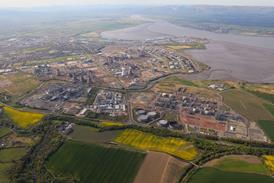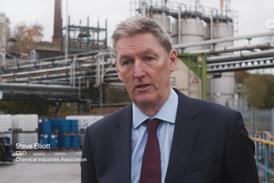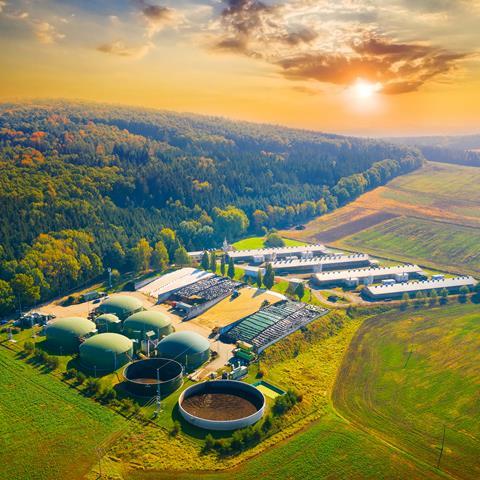Following the EU’s lead the UK could quicky establish a market-based demand for biogas, reducing the need for public subsidy and allowing UK ETS operators to reduce their emission footprint. Such a move would boost UK industrial competitiveness and liberate public and private finance to invest in UK growth and decarbonisation.
Today, when UK manufacturers need to generate heat they burn natural gas from the national gas grid. Because the natural gas within the national grid is predominantly fossil-derived methane gas, burning it results in the increase of carbon dioxide in the atmosphere, contributing to climate change. Like UK households, manufacturers use gas as a source for heat because it is widely available, and it is energy and cost efficient. With current prices as they are, switching to an electrical alternative would increase a manufacturer’s costs and leave them at a competitive disadvantage.
Biogas is a renewable source of methane produced as organic matter - such as plants and animal waste – is broken down by microorganisms. The creation of biogas forms part of our planet’s natural carbon cycle, as plants take carbon from the atmosphere and then release it at the end of their lifecycle. But its production can be controlled and facilitated through a process called anaerobic digestion, where organic matter is decomposed in the absence of oxygen.
The UK government has introduced a Green Gas Support Scheme that provides financial incentives for new anaerobic digestion plants, to increase the proportion of biogas in the gas grid and reduce the overall emission footprint of UK gas consumers. This subsidy support is paid for through a levy on the gas bill of UK gas consumers – the Green Gas Levy - including UK chemical manufacturers, who already face a significant disadvantage on gas price when compared with their competitors in the US, Russia, China and the Middle East.
In the European Union, the emission factor for the combustion of biogas in their Emissions Trading Scheme (EU ETS) is zero. EU manufacturers are permitted to apply this factor for biogas taken from a mixed gas network, as long as it can be shown that the molecules of biogas in question were only injected into the gas network once and only removed for consumption once. This has two advantages: 1) it provides EU manufacturers with an immediate opportunity to reduce their emissions, and; 2) it allows biogas producers to pass through the green premium of their product to the consumer.
In the UK, manufacturers operating under the UK ETS are not permitted to benefit from the increasing proportion of biogas on the national grid, even as they pick up the growing cost of subsidising its production. This puts UK manufacturers at a competitive disadvantage and hinders industrial decarbonisation. This is because biogas forms one of only three potential routes to net zero scope 1 emissions for our sites, namely fuel-switching to electricity, fuel-switching to hydrogen, or fuel-switching to biomass (including biogas).
Of these three, only biogas provides a route that could already be both economic and immediately accessible. The UK has one of the highest industrial electricity prices in the OECD and those looking to connect to the electricity grid face waiting times of 5-10 years, and whereas a handful of sites can expect access to hydrogen in the next 5 years it is widely understood that hydrogen will never be available nationwide except as part of a mix of gases in the national grid.
The UK launched a call for evidence on a future policy framework for biomethane production in February 2024. The Government should publish a response to that call, confirming it will pursue a more pragmatic approach to the accounting of biogas in the UK ETS. Following the EU’s lead the UK could quicky establish a market-based demand for biogas, reducing the need for public subsidy and allowing UK ETS operators to reduce their emission footprint. Such a move would boost UK industrial competitiveness and liberate public and private finance to invest in UK growth and decarbonisation.
Annex
Future policy framework for biomethane production: call for evidence - GOV.UK - Consultation
Reporting biomass in installations (UKETS03 MRR) – 4. Biogas fraction in natural gas grids
Implementing regulation - 2018/2066 - EN - EUR-Lex - Article 39 (para 3)
Directive - 2009/28 - EN - Renewable Energy Directive - EUR-Lex - Article 15






















